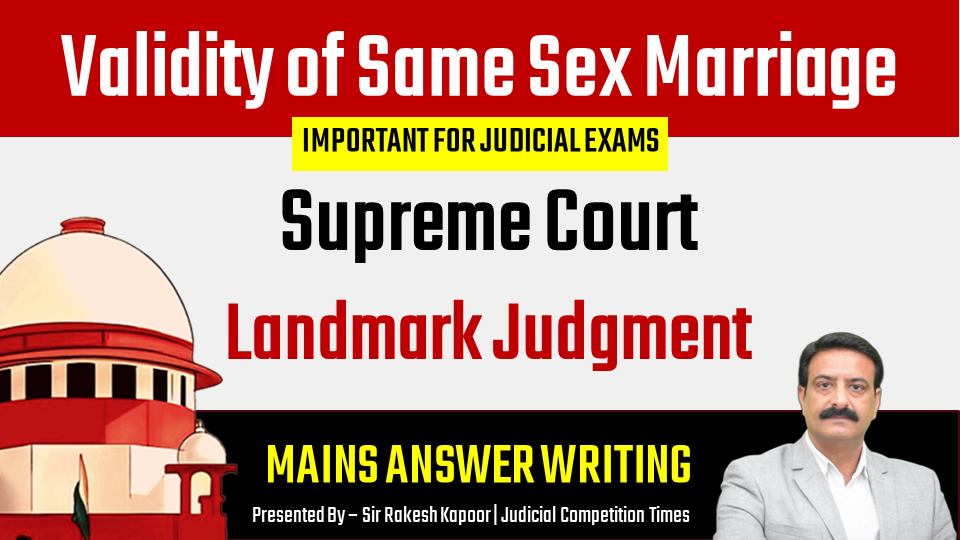Same Sex Marriage Supreme Court Judgment | Right to Marriage is not Fundamental Right Judicial Exams
Supriyo Chakraborty v. Union of India (2023) is a landmark case in the history of LGBTQ+ rights in India. In this case, the Supreme Court of India was asked to decide whether same-sex couples have the right to marry. A five-judge bench of the Supreme Court, led by Chief Justice of India D.Y. Chandrachud, heard the case. In a split decision, the bench ruled against recognizing the right to same-sex marriage in India. However, the court did reiterate that queer people have the right to form relationships and that the state cannot discriminate against them on the basis of their sexual orientation. The court's judgment was met with mixed reactions. LGBTQ+ activists and allies expressed disappointment, while some conservative groups welcomed the decision. Key takeaways from the judgment: The right to marry is not a fundamental right for queer persons. Queer people have the right to form relationships and the state cannot discriminate against them on the basis of their sexual orientation. The Special Marriage Act, 1954, which does not allow same-sex marriages, is constitutional. The court has left it open to Parliament to legislate on same-sex marriage. The judgment in Supriyo Chakraborty v. Union of India is a setback for the LGBTQ+ community in India. However, it is important to note that the court has not ruled out the possibility of same-sex marriage in the future. The court has left it open to Parliament to legislate on the issue, and it is possible that Parliament may do so in the coming years.

